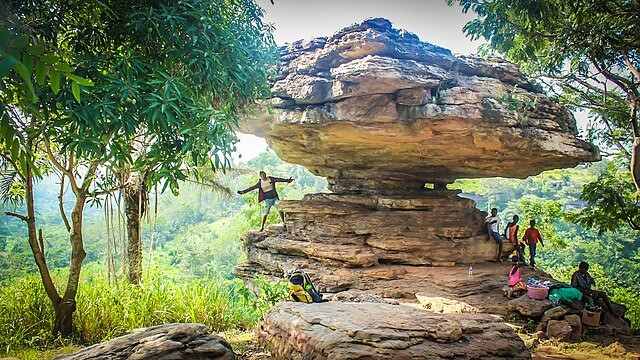Across Ghana’s varied terrain, a quiet movement has been reshaping the country’s relationship with tourism. Eco-tourism, once a niche idea, has emerged as a growing force, marrying the demands of travel with a commitment to conservation and community well-being. It is an approach that seeks not only to showcase the nation’s beauty but also to protect it.
Ghana’s natural wealth is striking. Dense rainforests cloak Kakum National Park, where a canopy walkway suspends visitors above a green sea of leaves, alive with birdcalls. Along the Atlantic coast, palm-fringed beaches stretch for miles, their rhythms shaped by fishing communities that have endured for generations. Inland, rivers wind through farmlands and savannas, offering opportunities for rafting, hiking, and wildlife encounters. Yet the country’s leadership in eco-tourism lies not in its scenery alone but in the way local people are placed at the center of these experiences.
Many of Ghana’s eco-tourism projects are community-driven. Eco-lodges and guided tours are often managed by residents who view sustainability not as a slogan but as necessity. Revenues support schools, clinics, and small businesses, reinforcing the economic foundation of towns and villages that might otherwise see little benefit from conventional tourism. Travelers are welcomed into daily life—whether through cooking traditional dishes, observing craftmaking, or attending ceremonies—creating an exchange that feels both intimate and rooted in authenticity.
Conservation, meanwhile, remains a pressing priority. Protected areas in Ghana face encroachment from agriculture, logging, and urban expansion. Eco-tourism initiatives aim to counter these pressures by linking preservation to livelihoods. In Mole National Park, for instance, community-led safaris highlight elephants and antelopes in their natural habitats, while also raising funds for anti-poaching patrols and habitat restoration. Such programs demonstrate how environmental stewardship can become inseparable from economic survival.
Education has become another pillar of this movement. Eco-tours often incorporate lessons in sustainable farming, waste management, and biodiversity protection. The intent is not only to inform outsiders but also to reinforce practices that safeguard the land for future generations. By elevating these stories, eco-tourism extends beyond leisure, positioning Ghana as part of a broader global dialogue about sustainability.
Perhaps most striking is the sense of connection forged in the process. Ghana’s reputation for warmth and hospitality finds new expression through eco-tourism. The personal interactions—meals shared, stories exchanged, crafts learned—help illustrate the direct impact of sustainable travel on daily lives. These encounters underscore the principle at the heart of eco-tourism: that cultural resilience and environmental protection are intertwined, and that one cannot thrive without the other.
In Ghana, the movement is still evolving. Yet the model it presents is clear: a vision of tourism that honors both people and place, ensuring that landscapes endure and communities flourish. What emerges is not merely a way of traveling, but a way of seeing the future.
Sources:
- Ghana Tourism Authority, Eco-Tourism Development in Ghana (official publications)
- Ghana Wildlife Division, Ministry of Lands and Natural Resources, Annual Report on Protected Areas
- Bruner, Edward M., Culture on Tour: Ethnographies of Travel, University of Chicago Press, 2005

